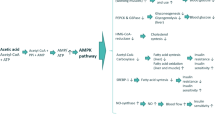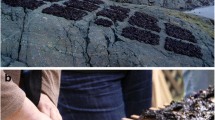Summary
Background: The bioavailability of carotenoids has been investigated in animal studies as well as in human studies, so far mostly for β-carotene. Only few results exist for lycopene. In recent studies, lycopene was significantly better available from processed tomatoes compared to raw tomatoes, when using daily intakes between 16.5 mg and 75 mg lycopene.
Aim of the study In a comparative study the availability of a low oral lycopene dosage of 5 mg/d from different food matrices versus soft gel capsules containing tomato oleoresin was assessed. In addition to the plasma carotenoid content, the effect of lycopene ingestion on other plasma carotenoids, the lipid status parameters, and the antioxidant activitys was estimated.
Methods Twenty-two female adults (20 – 27 y) were randomized in three groups and were advized to minimize their carotenoid intake for two weeks. After this initial period, two groups received a portion of tomatoes or tomato juice adjusted to a lycopene dose of 5 mg/d, the third group ingested the same dose comprized in soft gel capsules containing tomato oleoresin.
During the test period of 6 weeks, the participants continued reducing the intake of carotenoids from food. Fasting blood samples were withdrawn prior to the study, before supplementation started, and then weekly while supplemented.
Seven-day dietary records were prepared before the study started and after one week of supplementation. Carotenoids were analyzed by reversed phase HPLC with diode array detection. Dietary records were evaluated using the computer software EBIS 2.1. The plasma total cholesterol, HDL cholesterol, and triglycerides were determined enzymatically. In addition, the antioxidant activity of plasma was estimated by using the TEAC and the TRAP assays.
Results The basal levels of lycopene in plasma were comparable for all groups (0.2 – 0.3 μmol/l) and decreased significantly during the two weeks of depletion to approximately 50 % of the basal values. Other plasma carotenoids such as β-carotene and β-cryptoxanthin decreased significantly, too, whereas lutein and zeaxanthin remained unchanged. After supplementation with tomato oleoresin capsules or tomato juice, the plasma lycopene increased significantly, while it remained unchanged during intake of tomatoes.
Normal dietary habits were practized of all volunteers before and during the study except vitamin C whose intake was significantly lower during the study period, because the probands were recommended to reduce the intake of fruits and vegetables. Lycopene supplementation did not affect the lipid status parameters of the three groups. After ingestion of lycopene the antioxidant activity of the plasma was not altered. Mean TEAC values were estimated to 0.33 ± 0.05 mmol/l and TRAP values to 1.0 ± 0.1 mmol/l and showed no significant differences in all groups during the whole study period.
Conclusions The bioavailability of lycopene varied significantly depending on the administered matrix. Lycopene from tomato oleoresin capsules and tomato juice (processed tomatoes) was better absorbed from the intestine than lycopene from raw tomatoes.
The daily intake of 5 mg lycopene, an intake comparable to the usual daily carotenoid intake, did not affect cholesterol and triglycerides in plasma or its antioxidant capacity.
Similar content being viewed by others
Author information
Authors and Affiliations
Additional information
Received: 1 March 1999, Accepted: 30 April 1999
Rights and permissions
About this article
Cite this article
Böhm, V., Bitsch, R. Intestinal absorption of lycopene from different matrices and interactions to other carotenoids, the lipid status, and the antioxidant capacity of human plasma. Eur J Nutr 38, 118–125 (1999). https://doi.org/10.1007/s003940050052
Issue Date:
DOI: https://doi.org/10.1007/s003940050052




